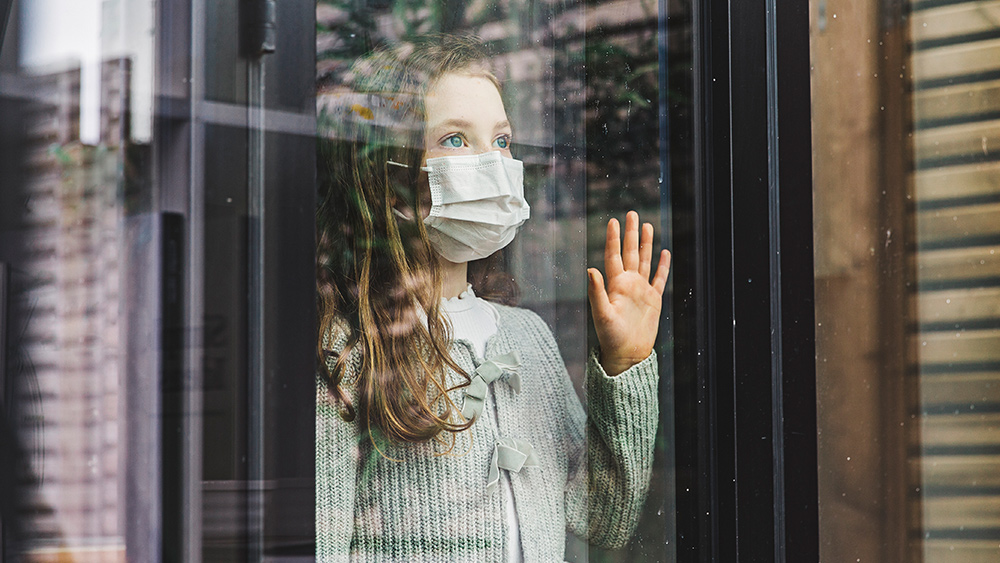Alabama school districts sue social media companies for causing youth mental health crisis
04/05/2023 / By Cassie B.

A trio of Alabama school districts are suing major social media platforms on the grounds that they have created a mental health crisis for children.
The companies named in the lawsuit include TikTok, Facebook, Instagram, Snapchat and YouTube, who the suit says are employing insufficient age verification measures and parental controls. In addition, they say that these social media platforms employ information feeds that are designed to keep users in a trance, as well as manipulative reward mechanisms that work to activate dopamine and create unhealthy social comparisons.
All of these issues combine to create a product that the lawsuit says is “harmfully addictive” and whose dangers are particularly damaging to young people.
“Excessive screen time is especially harmful to adolescents’ mental health, sleep patterns, and emotional well-being. Yet, Defendants’ products lack any warnings (to users in general, minor users, or their parents) that foreseeable product use can cause injury to users’ mental and physical health, rendering the products unreasonably dangerous,” the suit states.
Moreover, instead of taking steps to make their platform safer for young users, these social media companies are purposefully designing their products in a way that facilitates addiction in order to boost their bottom line.
This is just one of several similar lawsuits to be filed in recent times. The state of Arkansas and San Mateo County’s Board of Education have also filed suits related to the manipulative and addictive nature of social media platforms.
The new suit alleges that social media’s addictive components were intentionally created to take advantage of the same neural circuitry that operates in drug and gambling addictions.
The lawsuit goes on to claim that these social media platforms are contributing to what has become an epidemic of mental health issues in children, with students noting record rates of mental health issues such as depression and anxiety.
The suit continues: “These students perform worse in school, are less likely to attend school, more likely to engage in substance use and to act out, all of which directly affects Plaintiffs’ ability to fulfill their educational mission.”
Schools want social media platforms to be held accountable
The school districts are calling for social media platforms to make positive changes and to be held accountable for their actions. They say that the platforms know that their products are damaging to minor users and have failed to take steps to mitigate these dangers or warn users and parents of the potential effects.
When it comes to age verification, the suit says that none of the social media platforms are properly checking people’s ages. Instead, users are asked to self-report their age, which is something that is very easy to get around. They maintain that this is a violation of the Federal Trade Commission’s Children’s Online Privacy Protection Act of 1998.
Another aspect of social media that the school districts cite in their lawsuit is the exaggerated reality that leads to comparisons that can damage young people’s self-esteem.
It notes: “Social media-induced social comparison often results in a discrepancy between the ideal self and the real self, thus evoking a sense of depression, deprivation, and distress, resulting in an overall aggravation of one’s mental state.”
Meanwhile, editing tools such as filters add to this false reality that is leading to body image issues, body dysmorphia and eating disorders, among other problems. All of these effects combine to cause what it terms a “perilous amalgamation of intense psychological vulnerability and targeted exploitation” that is causing problems such as withdrawal from family and friends, fatigue, insomnia, a lack of focus, self-harm and suicide.
One of the attorneys representing the school districts, Davis Vaughn, said that the schools now have to offer mental health resources to students because of their addiction to social media and related problems.
Sources for this article include:
Submit a correction >>
Tagged Under:
addiction, Big Tech, computing, dangerous, deception, Facebook, Glitch, information technology, Instagram, lawsuit, manipulation, mental health, meta, Mind, mind body science, mind control, schools, SnapChat, Social media, tech giants, technocrats, YouTube
This article may contain statements that reflect the opinion of the author
RECENT NEWS & ARTICLES
COPYRIGHT © 2017 DEPRESSIONSYMPTOMS.NEWS
All content posted on this site is protected under Free Speech. DepressionSymptoms.news is not responsible for content written by contributing authors. The information on this site is provided for educational and entertainment purposes only. It is not intended as a substitute for professional advice of any kind. DepressionSymptoms.news assumes no responsibility for the use or misuse of this material. All trademarks, registered trademarks and service marks mentioned on this site are the property of their respective owners.




















